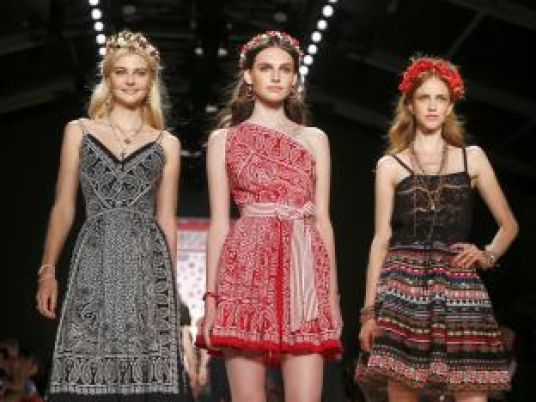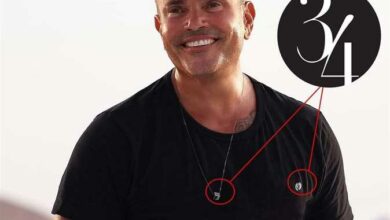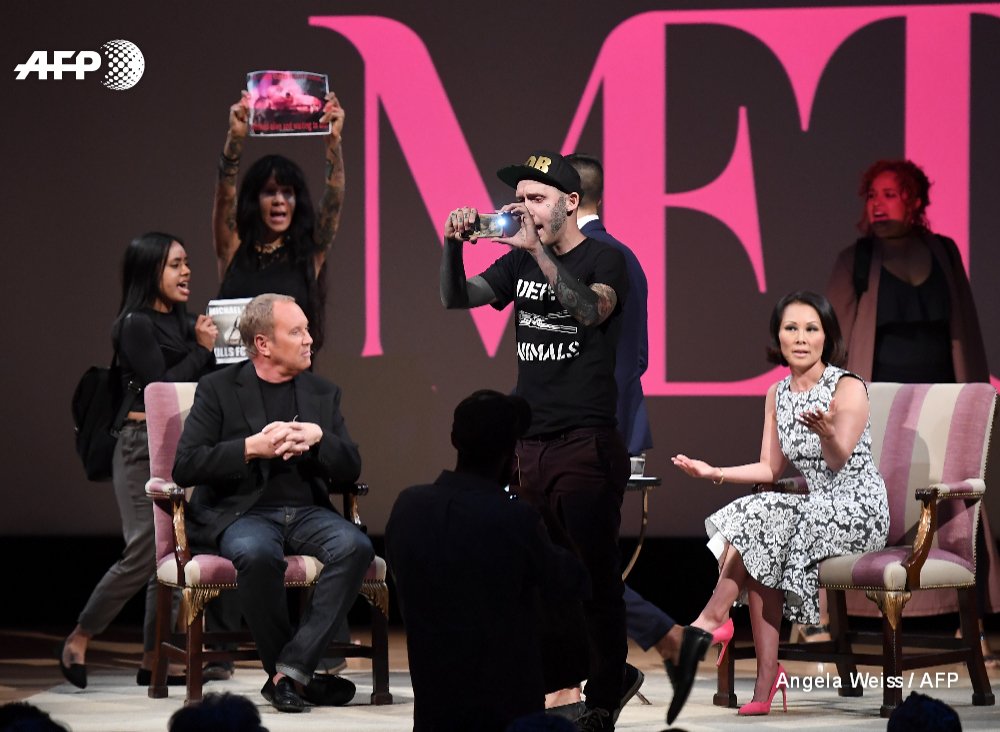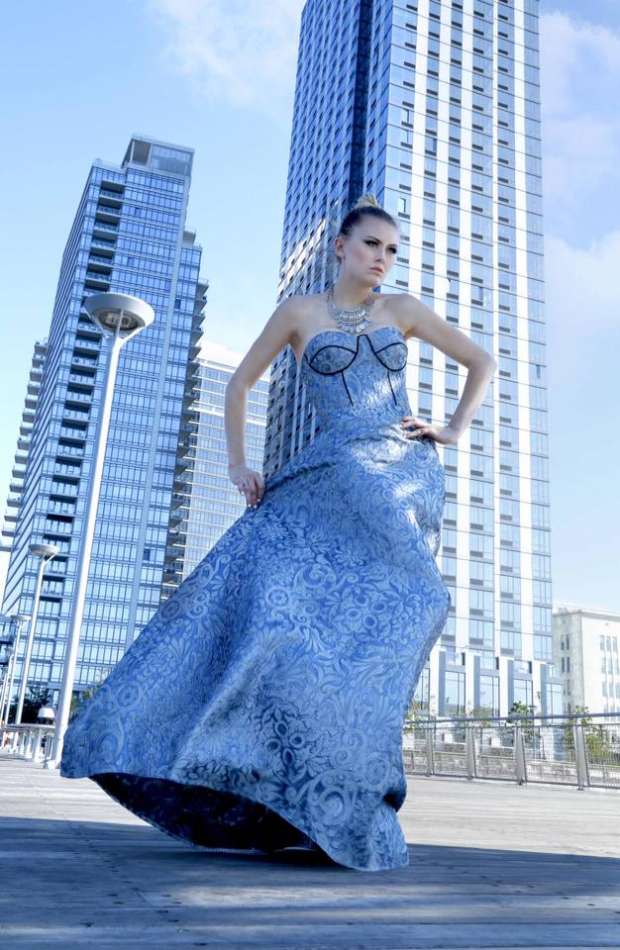
As CEO of one of the world's most famous model agencies, Katie Ford traveled the globe searching for fresh-faced young men and women and turning them into stars on the catwalks of New York, Paris and Milan.
Now she's using the skills she developed in her decade at the helm of Ford Models to help fight human trafficking and slavery, in the US and around the world.
Ford admits she'd never even heard of trafficking until the United Nations asked her to a conference on the subject eight years ago. She was stunned to discover the similarities to her own industry.
"When I heard that there were people in slavery today, I really couldn't imagine it," she explains. "[But] how people are trafficked, it was parallel to how we scouted models around the world — we spoke with mostly young women, but also men, about the opportunities to work in New York in the fashion industry.
"Of course, modeling comes with fame and other benefits and a very, very high salary, but the hope and the dream that a model has for a better life is the same thing as a field worker who comes here from Mexico — they're hoping to build a better life for their family back at home … and then they get duped into situations that aren't what they expected."
Inspired by what she'd heard, Ford was convinced she could put her talents to use helping those who found that moving to the US didn't turn out to be the happy ending they'd expected.
So she set up a foundation, Freedom For All, which aims to support the victims of modern-day slavery, and to convince companies to eliminate forced labor from their supply chains.
"I knew I could do something to help, because I had a very specific set of knowledge: immigration law, dealing with young people traveling abroad for work … As a CEO you're driving everything, so it gave me the belief that I could change things — because I was used to changing things."
One of those Ford has supported is financial analyst Shandra Woworuntu, who moved to the US in search of work in 1998, after losing her job at home in Indonesia. She paid a recruiter $3,000 to secure what she thought was a six-month seasonal job at a hotel in Chicago.
"I was excited," Woworuntu says. "I went to the embassy, got my visa, flew to New York City."
But once her plane landed, things quickly went wrong: She was met at the airport by a man who told her she'd have to stay in New York overnight.
"He drove me to a place and exchanged me for money," she explains. "I was sold to five different traffickers and forced into the sex business the same day, within three or four hours."
Woworuntu says her passport was taken away and she was told she'd have to earn $30,000 in exchange for her freedom — at a rate of $100 per customer.
Nicknamed "Candy" and made to work in a succession of brothels, she says she escaped twice — on one occasion by jumping from a second-floor window — and told the police, but says they didn't believe her.
Eventually — after sleeping rough in parks and begging for food — a friend helped her contact the authorities, who arrested several of the traffickers and rescued other women.
Now she is working to help victims of trafficking in the US, offering them training and opportunities,empowering them to find jobs and reintegrate into the community.
"My survival wasn't easy," she says. "But I learned something."
Encouraged by Ford, she's also sharing her story to motivate others.
"Every time you hear a survivor's story, it's moving," says Katie Ford. "It's an inspiration. It's wonderful to watch the change, to see somebody when they're first freed, and then two or three years later see how they're soaring — it's fantastic."
Ford hopes to use shocking cases like Woworuntu's to force change in the world of fashion and other industries touched by modern-day slavery.
"Every journey starts with a first step — the more people know about it, who care about it, they're going to be looking out for it. Today, if we saw somebody chained to a post, we would do something about it, but in the days of the transatlantic slave trade, that was normal. People's attitudes change, but they have to know what they're seeing."
And while she believes there are signs of progress, the campaigner says she does find it frustrating that many businesses willfully ignore signs of trafficking.
"In some cases, people are trying to implement change, but in some they just don't care. They say 'Oh, it's tier two, three, four, it's far away from where I am,' but really those profits aren't far away from where they are."
For her part, Ford says, she'll keep fighting trafficking: "Until it ends, which I hope is in my lifetime."




